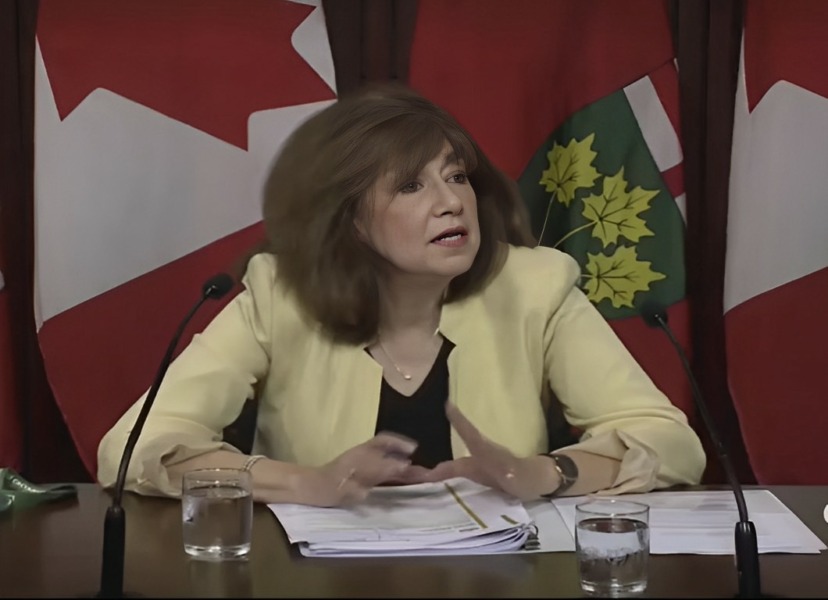Bombshell Report: Auditor General Exposes Greenbelt Controversy Involving the Ontario Government
- TDS News
- Eastern Canada
- Trending
- August 9, 2023

Today, Bonnie Lysyk, the Ontario Auditor General delivered a bombshell report sending shockwaves through Ontario’s political and environmental spheres; Lysyk’s report has shed light on a contentious issue involving Premier Doug Ford and his government’s handling of land extraction from the Greenbelt. The report alleges that certain developers in the province wielded direct influence over the decision to extract lands from the protected Greenbelt area, ultimately resulting in substantial financial gains for them.
According to the report, developers in Ontario were granted a level of influence that significantly impacted the province’s decision to extract lands from the Greenbelt. The report suggests that these developers enjoyed preferential treatment, which extended to influencing the housing minister’s chief of staff decisions. This influence, the report asserts, was aimed at favouring specific landowners who stood to benefit financially from the proposed land development.
The Ministry of Municipal Affairs and Housing (Housing Ministry) had already allocated the entirety
of the 1.5-million-unit housing target to municipalities in October 2022—one month before the
government’s proposal to remove land from the Greenbelt.
- The government and the Housing Ministry did not have evidence that removing land from the
Greenbelt was needed to meet the government’s housing goals. - Ontario’s Housing Affordability Task Force determined that a shortage of land was not the cause
of the province’s housing challenges and that the Greenbelt and other environmentally sensitive
areas must be protected. - Chief Planners in the regions of Durham, Hamilton and York—which are home to all 15 sites
removed from the Greenbelt—told us that Greenbelt land was not needed to meet the housing
targets assigned to them by the Housing Ministry and that there is sufficient land outside the
Greenbelt in their regions that is already or easily serviced. - The Regional Planning Commissioners of Ontario, a group of senior municipal planning leaders
from across Ontario, stated it does not support the removal of lands from the Greenbelt as a
necessary step to address Ontario’s housing needs - Agriculture Ministry staff found that 76% of the approximately 7,400 acres removed was in activeagricultural use in 2022. Further, about 83% of the total area removed is classified as Class 1–3prime agricultural land, which is of the highest quality and capability for agriculture.
The report highlights how this developer’s influence led to heavily biased decisions favouring two specific landowners. These landowners, identified in the report, were projected to receive up to 92% of the newly developed land—an outcome that raised eyebrows due to the disproportionate nature of the allocation. Such preferential treatment, as outlined by the Auditor General, potentially raises concerns about fairness, transparency, and the potential for undue influence in policy decisions.
One of the most staggering revelations in the Auditor General’s report is the projected financial windfall for the owners of 15 parcels of land removed from the Greenbelt. The report estimates that these landowners could see the value of their properties rise by an astonishing $8.3 billion. This astronomical increase in property value underscores the potential economic benefits that certain individuals could reap as a result of the decisions made by the Ontario government.
Beyond the financial implications, the report also highlights the environmental consequences of land extraction decisions. The Greenbelt, a protected land area surrounding the Greater Toronto Area, serves as a vital ecological buffer against urban sprawl and provides essential habitat for various plant and animal species. The extraction of lands from this protected area raises concerns about the potential disruption to ecosystems, loss of biodiversity, and long-term impact on the environment.
Lysyk raises serious questions about the integrity of the decision-making process within the Ontario government. The allegations of developer influence and preferential treatment cast doubt on the transparency and accountability of those in positions of power. It also highlights potential vulnerabilities in the system that could be exploited for personal gain at the expense of the public interest.
The report’s findings underscore the need for a thorough investigation into the alleged misconduct and reevaluating the decision-making processes within the province’s government. As Ontario grapples with the aftermath of these revelations, the focus remains on safeguarding transparency, accountability, and the long-term health of both the environment and the democratic process.








